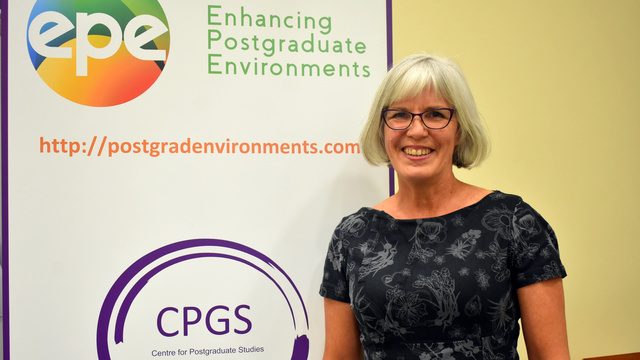
By Professor Sioux McKenna
Around the world there has been a massive increase in demand for doctoral education. This mostly stems from the idea that the “knowledge economy” requires high-level skills. The claim that there’s a correlation between a country’s economic stability and the proportion of its population who have doctorates has led to national targets being set for doctoral graduation.
In 2010, 1 420 doctoral candidates graduated in South Africa. Since then the number has more than doubled. The high increase in both intake and graduation has led to concerns about quality.
A key question is: how did South Africa find the capacity to double its numbers given that the number of supervisors has grown at a markedly slower rate over this period?
A significant amount of money has been invested in doctoral education. The national funding formula gives all universities a strong incentive to increase their doctoral intake. But there are questions to be asked about whether the quality of doctoral education justifies these investments of taxpayer money.
The quality of doctoral graduates matters because, as the highest level of education, it sets the tone for quality throughout the university. To answer some of the concerns, the Council on Higher Education is about to conduct a national review of higher education institutions that offer doctoral-level qualifications. This will be the first of its kind for the council, which, among other things, is responsible for developing and implementing systems of quality assurance for higher education.
The review
Every institution that offers doctoral qualifications has to develop a self-evaluation report indicating how it ensures it meets the doctoral standard. The report has to specify, with evidence, how the institution assures the quality of every step of the doctoral curriculum. This ranges from selecting students to allocating supervisors, providing institutional support, developing and reviewing proposals, ethical clearance and the examination process. It also needs to demonstrate how the institution ensures that its graduates embody specified doctoral attributes.
A review panel then verifies and interrogates the claims by the institution. This is followed by a report to the institution. Institutions that don’t meet all the requirements are required to submit an improved plan to the council. If there are serious concerns after this, the council has the authority to withdraw accreditation from the academic institution.
Research shows that funding is a key determinant of the rate at which doctoral candidates complete the degree. It’s also known that some universities are research-intensive with numerous seminars, research design courses and research chairs. But in others, the supervisor and doctoral candidate may feel quite isolated.
Implications
We do not know whether the rapid increase in the number of doctorates has led to a weakening of quality. Perhaps the rise in predatory publications, a problem faced across the continent, suggests there is cause for concern. What is known is that some institutional audits undertaken 10 years ago uncovered problems with examination processes at doctoral level. This review is an opportunity to revisit the issue.
The quality of the doctorate has significant implications. Poor doctoral education can set the scene for the nature of knowledge creation and dissemination in the whole university. If quality processes don’t safeguard academic integrity at doctoral level, then they are unlikely to protect quality at lower levels.
Taxpayer money subsidises doctoral programmes, so the qualification should produce the kinds of knowledge and highly skilled graduates who can make a meaningful contribution to society. Quality assurance seems to encourage bureaucracy and compliance and be part of a rising managerialism in institutions. But it’s a good thing to start a conversation about what a doctorate is really for, and how to tell whether quality is being assured. Far more innovative approaches are needed.
The review might be the vehicle for the necessary institutional conversations.
